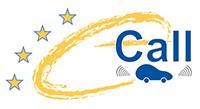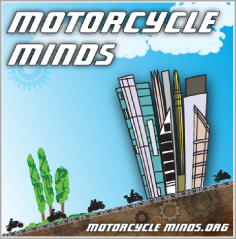 Europe calls once again with a proposal for a European wide IT system: eCall.
Europe calls once again with a proposal for a European wide IT system: eCall.
In September 2010 Right To Ride replied to a consultation on the system which the EU Commission would like to make mandatory for all vehicles.
eCall is an electronic “in vehicle” safety system that can automatically call emergency services if you have an accident – even if you are unconscious. The system informs rescue workers of your exact whereabouts, and apparently the ambulance and the fire brigade will be on their way in minutes. It is being touted that the system will work anywhere in Europe, even if you cannot speak the local language.
On the basis of this it all seems like a good idea but where do motorcycles fit into the system and what effect in general terms is there for motorcyclists or indeed for all road users?
eCall does not prevent accidents, it does not get the emergency services to the scene any quicker after the eCall system is activated, eCall is intended to inform the emergency services that a collision has happened and allow communication with the vehicle operator (if possible) to assess what has occurred, what is required and an exact location (with all the problems that GSM/GPS systems have).
eCall News
You can view all our news and reports on eCall.
All on the eCall news page – including what others are saying and reporting!
View our opinion on the eCall system on this page below – with links to information and documents on theissue including our response to the European Commission.
For the latest news on eCall – Click Here
Rationale Behind eCall
The rationale behind eCall is that, according to the EU Commission, it will save around 2,500 lives per year throughout Europe, however a study carried out on behalf of the Department for Transport in GB, highlights that, “many experts believe the evidence for this reduction of 2,500 deaths is slim.”
The main study looked at accidents in Finland to estimate the reduction in casualties, which largely occur on isolated roads with no witnesses.
By contrast, almost all accidents in the UK are quickly reported to the emergency services. The report concluded that the benefits for the UK are outweighed by the costs, which are estimated at £2.2 billion between 2010 and 2020. (Source: UK Parliament postnote January 2009 Number 322 Intelligent Transport Systems – Page 2 – pdf 110kb).
There are estimations for the cost of this system and according to an eCall report the cost would depend on whether the introduction is voluntary or mandatory (which is probably why there is a preference for the mandatory approach).
Voluntary approach: eCall will cost c.450 euros for vehicle manufacturers; 30 euros if purchased as part of a service package such as in-vehicle navigation system, while aftermarket (retro) eCall will cost approximately 200 euros.
Mandatory introduction: eCall will cost c.60 euros for vehicle manufacturers; 30 euros if purchased as part of a service package such as in-vehicle navigation system, while aftermarket (retro) eCall will cost approximately 70 euros.
The cost for motorcyclists would remain the same whether mandatory or voluntary eCall will cost approximately 100 euros for installation, the installation would most likely be in helmets. (Source: Impact assessment on the introduction of the eCall service in all new type-approved vehicles in Europe, including liability/ legal issues. Final Report – page 220 – pdf 4.3mb)
The eCall system for motorcycles requires standardisation, i.e. what will be regulated to fit on a motorcycle. This includes manual activation, hands-free communication, GPS, GSM connection, what space is available on a motorcycle to fit the system (though as mentioned above, it has been suggested that the system should be fitted to a helmet).
But it also needs to look at how the system will be triggered, what is the criterion for a motorcycle accident to prevent missed or false triggering of the system.
For example an unattended motorcycle that has fallen over or the rider has had a simple “spill” or dropping their bike while manoeuvring so that our emergency services precious time is not wasted.
Criteria for eCall
More relevant is the fact that once the criteria for eCall are established, the system will become a lucrative market for its stakeholders within the automotive industry, the mobile telecommunications industry and insurance companies. (source: Evaluation of radio implementations for emergency call systems – page 39 – pdf 1.4mb)
In fact in the consultation, question 13 asks the respondent “The mandatory introduction of eCall will contribute to speed up the deployment of other telematics services in Europe” to reply either yes or undecided. In another question the respondent was asked to agree (or not) if the in-vehicle eCall system could also be used to offer optional private or public telematic services, such as pay as your drive insurance schemes, dynamic navigation, breakdown calls etc.
Right to Ride opposes eCall, because we believe that the proposed system goes far beyond the principle of eCall for saving lives, and appears to effectively set out the EU Commission’s intent, which is to monitor and track all its citizens and use IT systems such as eCall for the benefit of money making ventures for the private sector.
In our response to the eCall consultation we wrote:
“The eCall system is an example of the intent of the European Commission to interfere in the lives of its citizens, by aiming to impose a commercial product through legislation, when a perfectly functional system already exists – the mobile phone, which can be activated either by a spectator or by the persons involved in the crash.”
“The probability of crashing in isolation (in Northern Ireland) without the opportunity of contacting emergency services is minimal and therefore the cost of developing and implementing this system goes well beyond the cost benefits for such a service, which suggests that there are ulterior motivations.”
“The whole safety discourse (from the EU Commission) appears to have taken on a life of its own, that has very little to do with saving lives. Rather it aims to provide an income for research institutes that receive millions of Euros from EU funding, with some projects that aim to find solutions, mainly set by political pressure and commercial targets.”
“This consultation is a good example of the vested interests of the private sector with the collusion of EU Commission representatives to impose technology (for financial gain) aimed at controlling EU citizens rather than for altruistic purposes”.
Links – Information
Right To Ride Response to Consultation – pdf 48kb – Click Here
European Commission – eCall – Click Here
Impact assessment on the introduction of the eCall service in all new type-approved vehicles in Europe, including liability/ legal issues – Final Report – Issue 2 – SMART 2008/55 – Project Report – pdf 4.3mb – Click Here
The Department for Transport – eCall – The Case for Deployment in the UK – Final report – October 2006 – pdf 1.3mb – Click Here
UK Parliament postnote January 2009 Number 322 Intelligent Transport Systems – pdf 110kb – Click Here
Evaluation of radio implementations for emergency call systems – pdf 1.4mb – Click Here
.
